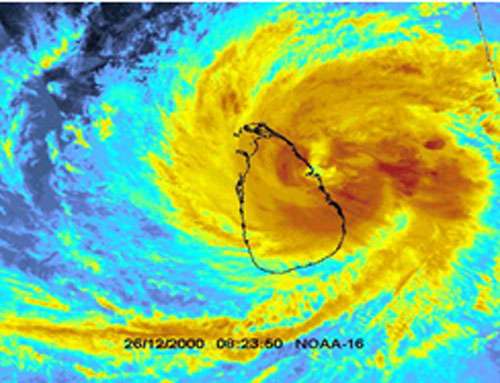Anxiety and Sleep
By Bimali Pandithakoralage, Attorney-at-law and Counselling Psychologist
Does Anxiety Disorder cause Sleep Disorder or does Sleep Disorder cause Anxiety Disorder? Both.It is established that anxiety causes sleeplessness and new research shows that long term sleep deprivation can cause anxiety disorders.
Poor sleep has a drip effect and its harmful effects are not limited to tiredness, inability to concentrate and poor performance. Sleeplessness puts individuals at risk for cardiovascular disease, high blood pressure, diabetes and obesity.
Anxious individuals experience interpretation bias and filter information very differently to someone who does not have anxiety. Sleeplessnessreduces problem solving ability and aggravates the anxious individual’s already reducedability to interpret information. In a time where making sound decisions based on properly interpreted information is crucial, sleep is an important weapon in the arsenal of any person helping reduce anxiety in individuals.
Sleep hygiene is a term used in psychology to describe good sleep habits. While there are medications to treat insomniaa holistic approach that includes Cognitive Behavioural Therapy and Relaxation Techniques is efficacious. Deep restorative sleep is the spring board from which we live our day andhere are some strategies toinculcate healthy sleep habits in the long term.
Sleep around the same time every day including weekends. The circadian rhythm works best when we have regular sleep habits.
Observe bedtime rituals. This can be a warm bath, deep breathing, listening to music or reading a book.
Use the bed for sleeping and avoid using it for working on the laptop, watching TV, reading, eating etc. This separation will help the brain associate your bed with sleep.
If you are unable to fall asleep after trying for about 20 minutes, get up and do something boring or calming like reading a text book or listening to soothing music and then try again.
Stop yourself from watching the clock and engaging in negative thoughts like ‘It’s so late now, I will never get enough sleep’. Turn or cover the clock if you need to.
Avoid consuming stimulants like alcohol, nicotine, and caffeine at least 4-6 hours before bedtime.
Stop using devices at least 30 minutes before bedtime.The light from devices acts as a stimulant to the eye and brain. A phone alarm is a helpful reminder to turn devices off.
Exercise daily but avoid strenuous exercise 4 hours before bedtime. Exercising in the morning or afternoon is best.Eat healthy, balanced meals and avoid a heavy stomach or an empty stomach at bedtime. Drink a warm cup of milk. The amino acid in milk is the raw material the brain uses to build serotonin and melatonin; compounds that help us relax.
Ensure that your room is cool, dark and quiet. Turning on a fan or other white noise will help cut off environmental noise.
Get into bed only when you feel tired and sleepy. Avoid lying awake in bed waiting to feel sleepy.
Refrain from skipping daytime activities because you have not slept well. This will only reinforce insomnia.Attend to the activities of that day even if you have not had a good night’s sleep.
Once you are able to fall asleep make sure you get an adequate amount of sleep. An average person needs 7 hours of sleep to perform at their best.
-
Still No Comments Posted.














Leave Comments